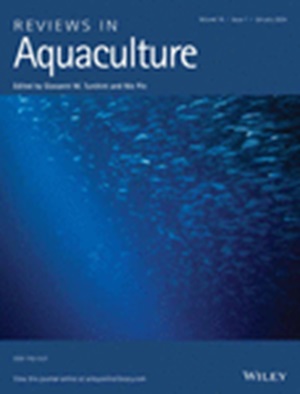Mariculture Narratives in Climate Change Research and Policy: Alignment, Mismatch, and Opportunities for a Climate-Resilient Industry
Abstract
Like other sectors of our global food system, marine aquaculture (mariculture) is threatened by a myriad of stressors resulting from a changing climate. Increasing attention has been given to the impact of these stressors on mariculture across a variety of taxonomies and geographies. Alongside this perspective of mariculture as vulnerable to climate change impacts, another narrative has also emerged framing mariculture as a potential mitigation and adaptation measure against climate change. Here, we evaluate the scope and context of these differing narratives across the peer-reviewed literature and how they are reflected in national mariculture and climate change policy across 31 representative countries. Our literature review identifies a strong research bias toward mariculture being impacted by climate change (75%), with a similar trend present across the small number of relevant policies. While there is broad narrative alignment between science and policy at a global level, in comparing country-level case studies to their corresponding national policies, we find that five countries have no alignment between research and policy with respect to individual climate change stressors; though most countries have at least some degree of alignment. Strategic governance is a critical tool for responding to climate change and has been shown to play a significant role in shaping the marine aquaculture industry. Our analysis highlights a pattern of science and policy mismatch that could lead to missed opportunities to leverage mariculture's potential as a climate change mitigation and adaptation tool as well as bolster the industry's resilience to climate impacts.

 求助内容:
求助内容: 应助结果提醒方式:
应助结果提醒方式:


